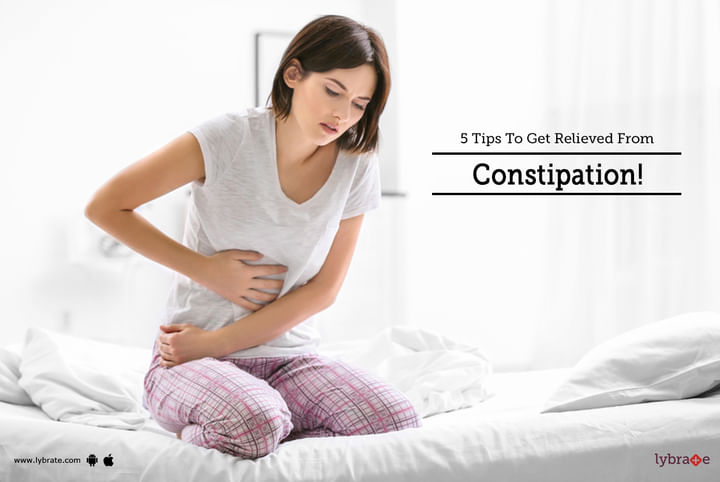5 Tips To Get Relieved From Constipation!
The feeling of not being able to pass your bowels is never a good one. It can leave you irritable, angry and not at your best. In medical terms, constipation is defined as having bowel movements less than thrice a week. However, it can also include infrequent bowel movements, incomplete evacuation and straining while passing bowels. Constipation is sometimes accompanied by nausea and bloating. When constipation turns chronic, it can lead to anal fissures, piles and rectal problems.
It generally occurs when the contents of the colon move very slowly.
What causes constipation?
Following are the causes of constipation –
- You aren’t exercising enough
- Not ingesting sufficient amount of fibre
- Inadequate fluid intake
- Medical conditions associated with hormones such as hypothyroidism
- Irritable bowel syndrome
- Sudden withdrawal from laxatives after a prolonged use
- Medication intake
How can you resolve the problem of constipation?
The occasional bout of constipation can undo itself. However, if your constipation is chronic then you can take the following steps –
-
Consume more fibre - Why is fibre being advocated aggressively to people with constipation? It’s simple, fibre, particularly the soluble variety, causes water to remain in the stool, which prevents hardening of stools. Insoluble fibre adds bulk to stools, which facilitates smooth movement of the bowels. Fibre-rich foods like vegetables, nuts and seeds can go a long way in easing symptoms of constipation.
-
Work out - Yes, exercise has a direct influence on your bowel movement. Regular exercise optimizes the muscles of the gut to facilitate smooth bowel movement. You can take simple forms of exercising like yoga, jogging or pilates, just ensure that you do it every day.
-
Hydrate yourself - Insufficient water intake can throw your body’s metabolic activities off balance. And bowel movements are a part of this. You need to ensure that you are drinking at least 3-5 litres of water daily if you are constipated. Remember, you can substitute water with beverages like coffee.
-
Consume probiotics - Probiotics are the beneficial bacteria in the gut. The role of these bacteria is vital in digestion. Moreover, these bacteria keep the population of the harmful bacteria in check. Probiotics play an important role in digestion, an extension of which is passing bowels. Therefore, include probiotic-rich foods in your diet like yoghurt and kefir.
-
Address magnesium deficiency - Many constipated people have a deficiency of magnesium in the body. When you take magnesium supplements, it can act as a gentle laxative. You can also increase your vitamin C intake to help with constipation.
Implement these lifestyle changes in your daily routine and notice the difference. Note that you will have to wait for 5-7 days to notice marked improvements in your condition.



+1.svg)
